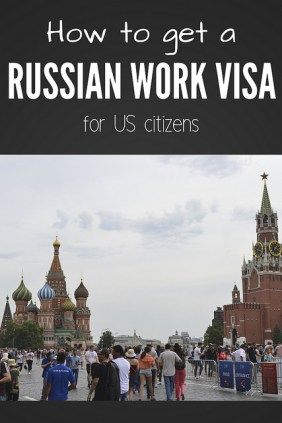Moving from the United States to Russia – it is a general and practical Leap, including the change to different culture. Since people move to Russia for job, studies and other purposes, it’s critical to know the visa and permits, where to look for accommodation and how to live in the country. Here also are more details on this guide, which can help to organize your moving process with ease.
Visa and Residency Requirements for US Citizens
I bet that anyone intending to leave the US for Russia has to ensure that they have the right visa as one of the most important steps. American citizens require a visa to live in Russia for employment purposes, leisure or educational purposes among others. There are different types of visas depending on your purpose, including:
- Tourist Visa: Typically valid for up to 30 days and not extendable.
- Business Visa: For those traveling for work-related reasons, valid for up to 1 year, with multiple entries allowed.
- Work Visa: Required for those moving to Russia for employment purposes. You’ll need an invitation from a Russian company, and this visa is usually valid for up to 3 years.
- Student Visa: For those attending a recognized educational institution in Russia.
- Temporary Residence Permit: If you plan to stay longer than a year, this is the first step toward applying for permanent residency.
Getting a visa might be a long and tedious process that should be started way ahead of time.
To get the required documents you will have to collect such ones as an invitation letter (if you are applying business or work visa), proof of health insurance, and filled-in application form. Times may differ depending on the situation, therefore it is worthwhile to consult with the Russian consulate about it.
Housing in Russia Finding a place to live when moving from the US to Russia can be a bit challenging, especially in larger cities like Moscow and St. Petersburg, where demand for housing is high. Rental prices can vary widely depending on location, size, and the condition of the property.In Moscow, the cost of rent is among the highest in Russia, with apartments in central areas commanding significant premiums. For a more affordable lifestyle, consider looking in the suburbs or in smaller cities, where rent prices are typically lower.
If you’re planning to rent, websites like Cian and Domofond offer a wide range of listings for apartments, homes, and shared living spaces. Be prepared to provide references and documentation to secure a rental agreement. If you plan to buy property, note that foreign nationals face certain restrictions, particularly in areas near borders or strategic locations.
Understanding the Cost of Living
The cost of living in Russia can be significantly lower than in major US cities, particularly in smaller cities or rural areas. Moscow and St. Petersburg are exceptions, where the cost of living can approach or exceed that of some Western cities, especially when it comes to dining, entertainment, and international goods. However, everyday expenses such as food, utilities, and transportation tend to be more affordable.
Public transportation in Russian cities is well-developed and inexpensive, with metro systems, buses, and trams being widely used in places like Moscow. If you plan on driving, keep in mind that Russian traffic can be chaotic, and you may need to convert your US driver’s license to a Russian one.
Adapting to Life in Russia
Adjusting to the life in Russia will not be obscure; especially when it comes to the language and the culture. Russian remains Areas of using English include in urban centers and international regions, but it is not commonly used in most areas except cities. Some basic knowledge of Russian will be very useful to get by in everyday life – to buy a meal, to talk to people.
The Russians are very family-oriented and their culture is diverse and sophisticated, I am sure that you would feel much difference between Russian and American culture. Officialness is valued in Russia, especially in the working context and it often does not take long to be friendly with a Russian.
One of the factors of the business environment in Russia is also the weather, especially, the severe winters. In case you plan to travel to Moscow or Siberia, you are in for cold winters with low temperatures drop and snowfalls. Accessory is important as is dressing in layers and of course having a good quality winter coat would be advisable.
Health and Healthcare in Russia
Like every other country, Russia has both public and private health care centers. You will also need to take out your own private health insurance throughout your stay as you would not be allowable in the state health care up until you have permanent residence status or a job which come with health care benefits. Private insurance facilities are often of better quality, and most world insurance policies also provide for treatment in Russia.
The selection of a qualified healthcare provider and confirming that insurance can possibly have card containing desired services such as emergency response, medications, and general visits to physicians is crucial.
Practical Tips for Moving to Russia
- Prepare for Bureaucracy: Russia has a complex bureaucratic system, so be prepared for paperwork and long processing times for various government services, from registering your visa to setting up utilities.
- Banking: Opening a bank account in Russia can be tricky for foreigners, as many banks require proof of residency. However, major banks like Sberbank and VTB offer services to expats, and you can also use international banks with branches in Russia.
- Food and Groceries: Russian supermarkets carry a wide variety of local and international products, but some American brands may be difficult to find. Many expats rely on larger stores like Auchan or Metro for more international food options.


